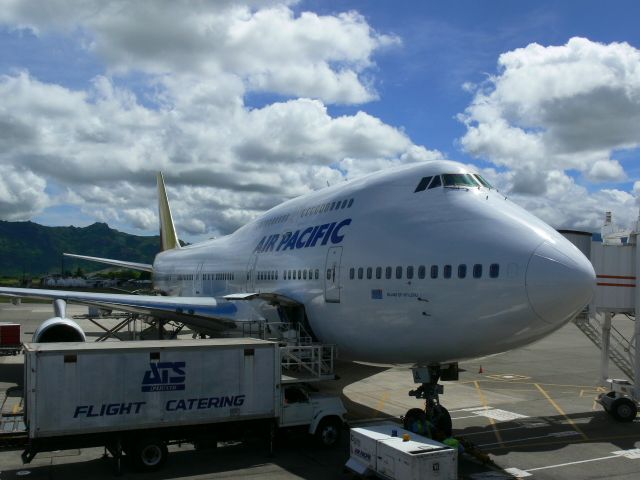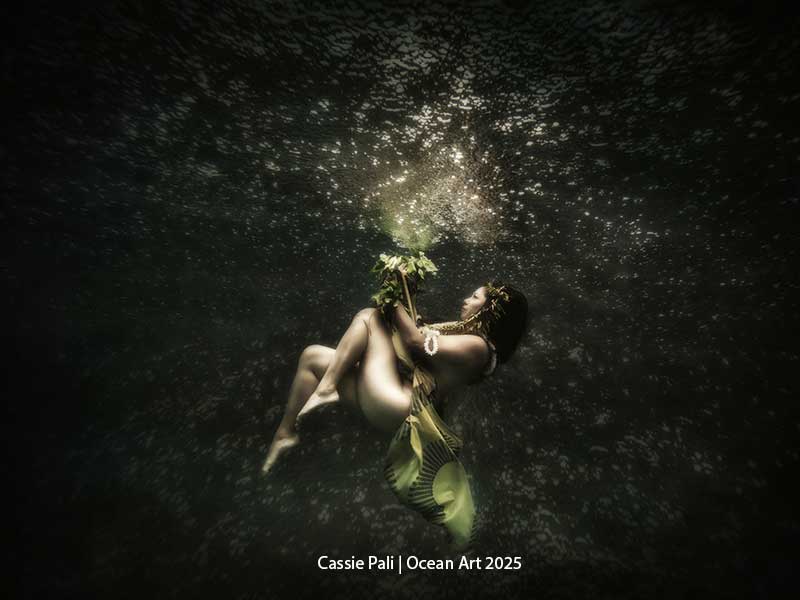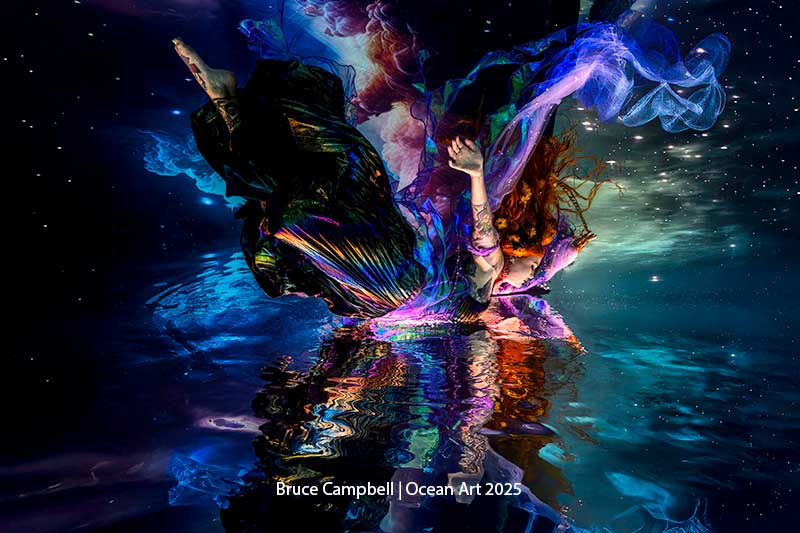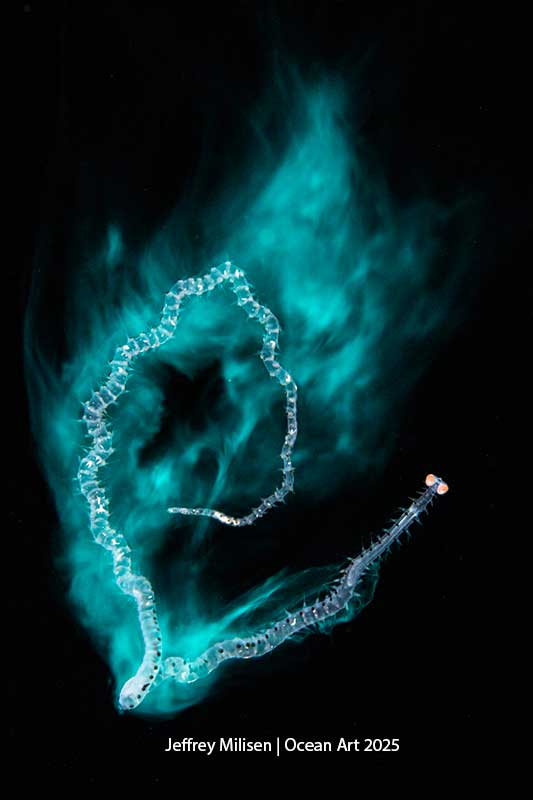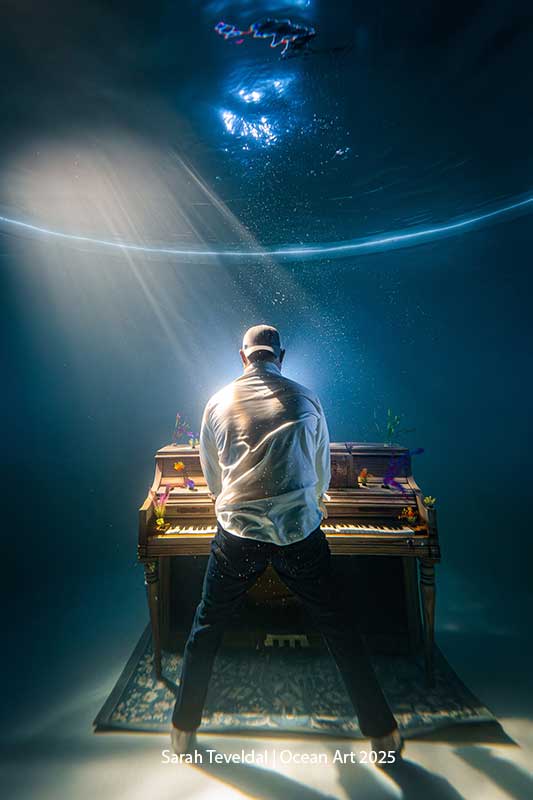Choosing a Dive Destination for the Underwater Photographer
Part 1
By Ridlon Kiphart
There are several things to think about when choosing a SCUBA diving destination, especially for the underwater photographer. Here we explore the key ones including:
-
Timing
-
Matching location with Experience
-
Time vs. Distance
Timing
My favorite way to pick a dive destination is to begin by brainstorming. Make a list of ALL the places you want to dive and stick it on your refrigerator or desk. Then you always have a master list and you can keep adding to it and, hopefully, crossing off.
The second thing to do is look at timing. Previously, we talked about how
Timing Is Everything in Dive Travel and here’s one more tip: Write down the BEST time of year for each dive destination on your list – notably when the wildlife you want to photograph are present. That way no matter when you take time off, you’ll likely have a dive destination for that time of year.
Your available time + Best time to dive a location = Great dive trip!!!
Matching location with Experience
Difficulty in diving includes a few basic topics including depth, water temperature, currents, visibility, surface conditions and available supervision. Trying to shoot underwater can make difficult conditions doubly hard.
Depth
In many locations you can dive at whatever depth you want and see and photograph everything you want. However, if you are going to shoot the seasonal greater hammerheads in Rangiroa they are at 150ft and
Blue Corner in Palau is best at 85’ when the current is really going off.
Water Temperature
The colder the water, the more wetsuit and weight you’ll need. Shooting a housing with thick neoprene gloves can be challenging. Practice beforehand.
Currents
Currents can be a function of tides, narrow passages or moon phases. Some destinations have currents that come and go and some are known for strong currents most of the time. This can be one of the most stressful types of diving so learn about drift diving and how to handle yourself in current – especially if you are carrying a big rig that’s going to act like a sail when your strobe arms are deployed.
Hint: when swimming around in current, fold your strobe arms in and carry the housing compactly against your body. On a fast drift dive, you may only get one chance to photography a subject as you rip past.
Visibility
Diving in low visibility can be disorienting, claustrophobic and downright spooky not to mention that low vis makes anything but macro photography almost impossible.
Low visibility diving
Surface Conditions
As with visibility and currents, these can change at a moment’s notice. Some dive locations are known for always having rough surface conditions. Know before you go. When on the surface, always have the reg in your mouth.
Amount of Supervision
The amount and degree of supervision varies considerably with resorts even within a single destination. Be sure to know how much you need or want and that it is matched with how much is provided. Want a pair of eagle eyes to help you find and photograph those
hard to find critters? Ask ahead of time.
Time vs. Distance
A key factor in picking your next dive destination may be how much time you have for your dive trip. If you have only one week, it’s really a haul to get to SE Asia. Don’t travel halfway around the world for five days of diving; it’s just not worth it. Once you get over the jetlag and relax it will be time to head home. Our rule is that if you are going to go for one week, then we have to be able to get there in a day or single overnight flight. If it requires more flying, we want at least 10 days and two weeks is better.
How far do you want to go? This plane is taking photographers to Fiji.
Hint: If you live on the west coast of the USA, did you know that you can get to excellent diving in the South Pacific in the time it takes to get to parts of the Caribbean? Consider Tahiti or
Fiji: Get on the plane Thursday night and go to sleep. Wake up and you’re there! You arrive Saturday (over the date line), then leave the following Saturday and get home the same day having Sunday to organize your photos, do the laundry and get a good night’s sleep for Monday morning. PLUS, airfares can be cheaper than the Caribbean. And…..I’ll just say it like it is …. the diving much is better.
Flying into Fiji – quite a nice view
by
Ridlon & Carin Kiphart
aka Sharkman & Mantagirl
Travel Editors
As members of the prestigious Explorers Club, Sharkman and Mantagirl are founders of Global Dive Expeditions, a premium provider of SCUBA diving vacations and advice on dive travel & the adventure lifestyle. They are also founders of Ocean of Hope Foundation, a non profit dedicated to restoring the health of the ocean through education.
“We believe in living an extraordinary life through adventure and share our experiences and knowledge so that others can do the same.”
Connect with Sharkman and Mantagirl on Facebook and Twitter!
